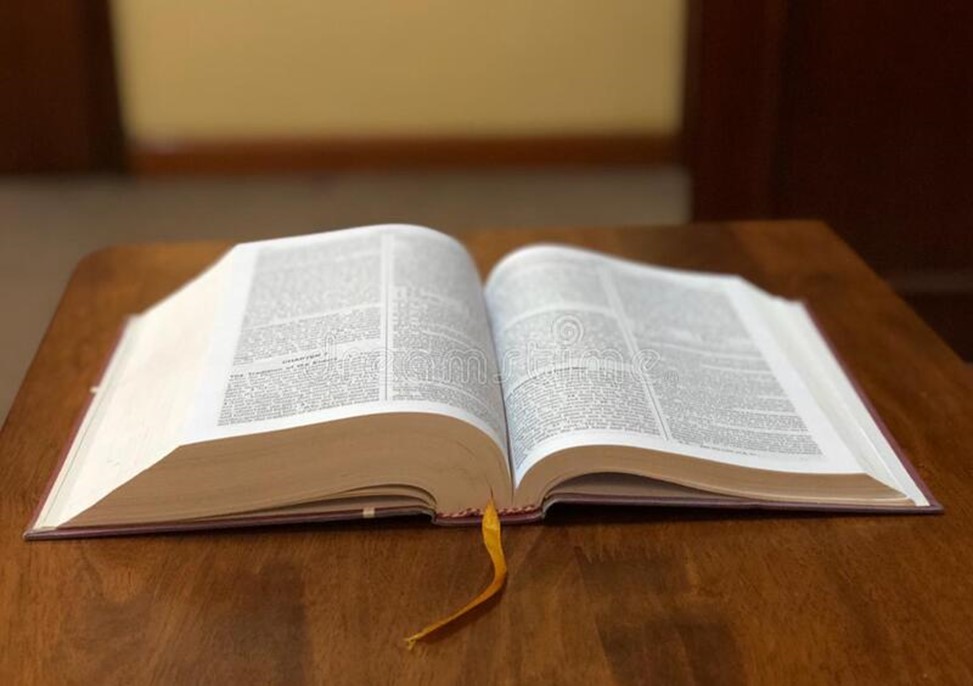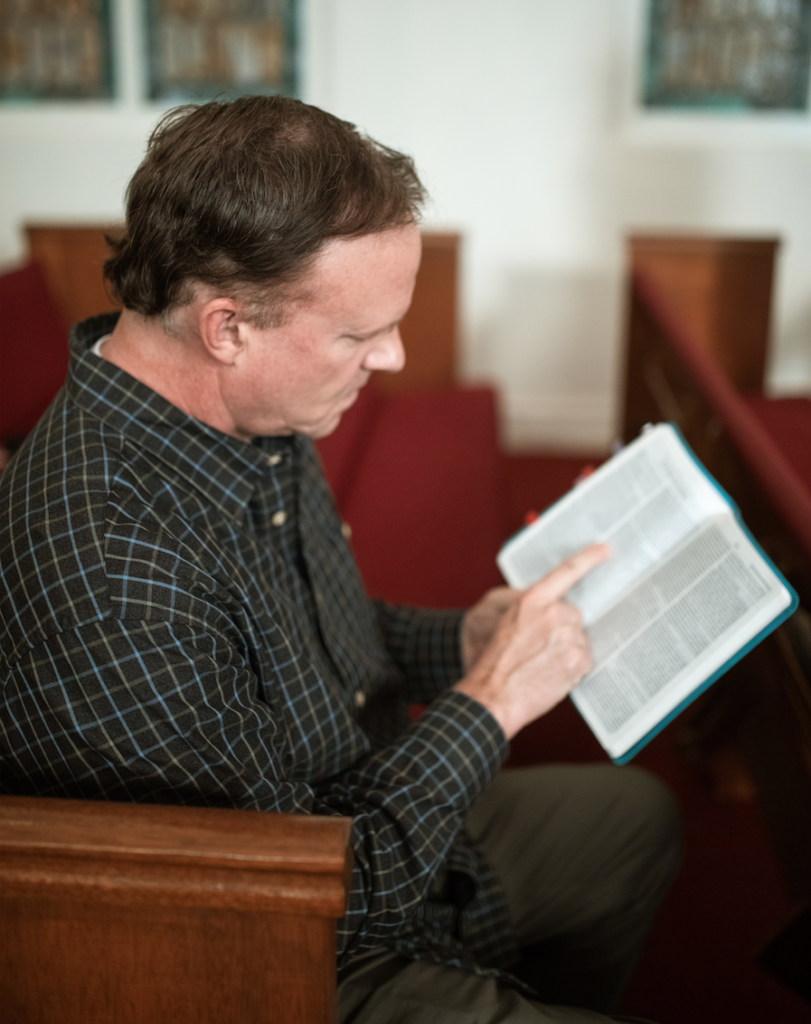The Word of God
How then do I come to know God’s voice in my life ?
In his Apostolic Letter of September 30th 2019, Pope Francis declared that the Third Sunday in Ordinary Time is to be devoted to the celebration, study and dissemination of the word of God – Sunday of The Word of God. From this Apostolic Letter, there is little doubt that the Holy Father is referring to the word of God in the scriptures.
However, I would like to explore a little further the phrase “Word of God” before moving into contemplating the scriptures. It seems to me it might be helpful to consider the ‘Word of God’ in three distinct yet deeply connected ways which highlights the wonder of the relationship into which we have been invited.
In his Apostolic Letter of September 30th 2019, Pope Francis declared that the Third Sunday in Ordinary Time is to be devoted to the celebration, study and dissemination of the word of God – Sunday of The Word of God. From this Apostolic Letter, there is little doubt that the Holy Father is referring to the word of God in the scriptures.
However, I would like to explore a little further the phrase “Word of God” before moving into contemplating the scriptures. It seems to me it might be helpful to consider the ‘Word of God’ in three distinct yet deeply connected ways which highlights the wonder of the relationship into which we have been invited.

By “Word of God”, we mean firstly : The Second Person of the Trinity.
Secondly : The Good News of Our Salvation.
Thirdly : You and I and all creation. In order to understand the scriptures, we must have some understanding of one and three. The Primary meaning of ‘Word of God’ is as the Second Person of the Trinity – Jesus Christ. St. John in his Gospel puts it in this way: “ In the beginning was the Word and the Word was with God, and the Word was God.” (John 1:1) ( We are dealing here with a very profound theological point ; one that we cannot pursue in this short article.)
It is this Good News that comes down to us in the Scriptures the second meaning of “Word of God”. These two senses of “Word of God” are deeply connected, both are the articulation of all that is true as spoken by God. We can begin to see that in a certain sense we too are the “Word of God”. What do I mean ? This is my third point mentioned above ; we are called to live in the light of the truth God speaks and to be transformed by it. In this transformation offered to us in baptism and nurtured by a life in the Sacraments, we participate in Jesus’ mission to bring God’s Word to the world.
We are called to witness to the Good News. As members of the Body of Christ, we are called to speak in the world in the way he did, each through our particular vocation. The only way we can do this is to stay intimately connected to the first two meanings of the “Word of God”- the person of Jesus Christ and the Scriptures. We have been given God’s Word so that that Word can become incarnate in us. To understand and so live his Word, I must pray, reflect and share my faith with those who are on the same journey. I am called to contemplate his Word and by so doing learn what it means to live my vocation to bring God’s Word to the world.
How then do I come to know God’s voice in my life ? A question most of us ask. We start by reading and then praying the scriptures. Scripture is often referred to as the Living Word. One of the ways we experience God’s presence in our lives is coming to know God’s voice and the way God acts in our lives through reading the stories and words of scripture.
PRAYING THE SCRIPTURES
I suggest two ways to pray with scripture. Lectio Divina (Holy Reading) and Ignatian Contemplation.
Lectio Divina : Here are 4 simple steps :
Read. Take a passage of scripture. Slowly read savour the words, stay with what touches your heart.
Reflect. What is God saying to me in this passage ? Offering you, asking you ?
Respond. Respond to God from your heart, aware of feelings and insights. Offer these to God.
Rest. Sit quietly in God’s presence. Rest in God’s Love.
How then do I come to know God’s voice in my life ? A question most of us ask. We start by reading and then praying the scriptures. Scripture is often referred to as the Living Word. One of the ways we experience God’s presence in our lives is coming to know God’s voice and the way God acts in our lives through reading the stories and words of scripture.
PRAYING THE SCRIPTURES
I suggest two ways to pray with scripture. Lectio Divina (Holy Reading) and Ignatian Contemplation.
Lectio Divina : Here are 4 simple steps :
Read. Take a passage of scripture. Slowly read savour the words, stay with what touches your heart.
Reflect. What is God saying to me in this passage ? Offering you, asking you ?
Respond. Respond to God from your heart, aware of feelings and insights. Offer these to God.
Rest. Sit quietly in God’s presence. Rest in God’s Love.

Ignatian contemplation.
A Guide
In Ignatian contemplation, St. Ignatius devised a way of praying with scripture through using imagination as a means to enter into a Gospel scene. In the Spiritual Exercises, contemplation is a very active way of praying which engages the mind and heart and stirs up thoughts and emotions. Not everyone needs to have a great imagination, vividness is not a criteria for the effectiveness of this kind of prayer. Engagement is, and the result is a more interior knowledge of Jesus.
Entering into prayer :
Pray for guidance : Pray that all of your thoughts and actions be directed by God. This experience is more than a thought experiment and this prayer helps to remind us that we are seeking greater knowledge and closeness to God. Review the narrative : Slowly read the passage once or twice so that you can remember the events that take place. Afterward, you might put the text away so that you can stay in your imagination.
Composition of place : Take some time to set the stage and picture the environment in which the story takes place. Immerse yourself in the scene and look around for a moment.
Ask for the grace you hope to receive : What do you hope to gain from this time of prayer ? Ask God for that grace.
Contemplation :
Pray through the story : You have already set the stage, so let the narrative begin to play out. Imagine the people and their words and actions. Pay attention to the details as they are helpful for appreciating the story.
Application of senses : Although this could be a prayer experience in itself, use your senses to interact with the scene, the environment, and the people. What do you see, hear, taste, smell and touch ?
If you feel stuck at all, here are some questions that might help you engage imaginatively with the passage.
How does Jesus talk to and treat those he encounters ?
How do people react to Jesus’ words and actions ?
Do you recognize any of the people, places, or objects ?
Are you in this scene? Where are you? What are you doing ?
Colloquy :
Toward the end of the prayer experience, Ignatius encourages the person to spend some time in conversation with Jesus “as one friend speaks to another.” You might also feel called to have a conversation with someone else from your time of prayer, such as Mary. Picture them present before you, ask them questions or say whatever you need to say to them, then take some time to listen for their response. Even if they don’t say anything, just take some time to be in their presence.
Review of prayer : Take some time after your prayer to reflect on what stood out to you the most from your prayer.
How did you feel during this time of prayer ?
What struck you the most ?
What was the most consoling moment of your prayer ? The most challenging ?
When did I feel closest to God ?
These two ways of praying scripture, the words and phrases that speak to us, nourish our hearts and give words to our own experiences. In this way, we are nourished with daily bread from God. In these sacred moments, we realize our connectedness to God and how we are called to participate in the transformation of the world in both big and small ways.
Sister Ann Turner, London Community
These two ways of praying scripture, the words and phrases that speak to us, nourish our hearts and give words to our own experiences. In this way, we are nourished with daily bread from God. In these sacred moments, we realize our connectedness to God and how we are called to participate in the transformation of the world in both big and small ways.
Sister Ann Turner, London Community

